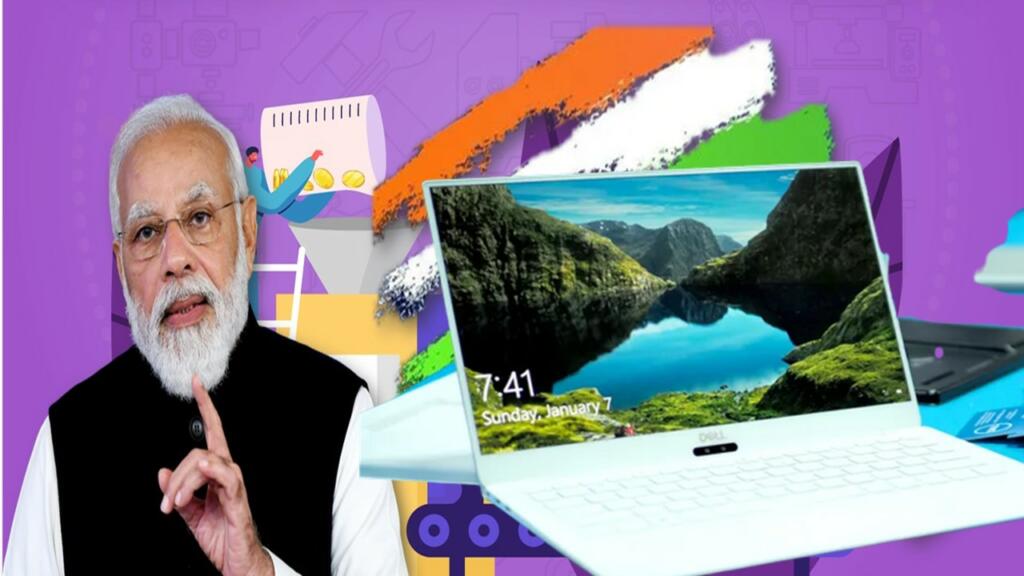In a daring move aimed at accelerating domestic production and promoting the “Make in India” campaign, the Directorate General of Foreign Trade, on Thursday, August 3, announced restrictions on the imports of laptops, tablets, and personal computers falling under HSN 8471. While the government’s decision has the potential to boost the domestic manufacturing sector, it has also sparked a massive meltdown among liberals who fear the move may benefit certain industrialists.
The notice issued by the Ministry of Commerce and Industry outlined the new regulations, stating, “Import of laptops, tablets, all-in-one personal computers, and ultra-small form factor computers and servers falling under HSN 8741 shall be restricted, and their import would be allowed against a valid license for restricted imports.” The restriction comes into effect immediately, putting imports under this category under stringent scrutiny.
Also Read: Gyanvapi Survey: The truth of Gyanvapi cannot be concealed anymore
Event : Reliance Jio launched its Jio-Book 3 days ago
Action : The Modi government restricts imports of laptops of foreign brands.
Hum sidha Ambani ko PM kyu nahi bana sakte? https://t.co/XorZZ2keRL
— Roshan Rai (@RoshanKrRaii) August 3, 2023
However, to ensure travelers’ convenience, the government clarified that the import restrictions would not apply to imports under baggage rules. This means individuals can bring in one laptop, tablet, all-in-one personal computer, or ultra-small form factor computer without requiring an import license, as long as it is for personal use and complies with existing baggage rules.
India has been proactively offering incentives to businesses over the past few years to encourage domestic manufacturing. The “Make in India” campaign has seen numerous smartphone manufacturers establishing production units in the country. As a positive consequence, chipmakers and semiconductor producers are also now taking steps to manufacture their products within India’s borders.
Despite the government’s intentions to bolster the domestic manufacturing sector and create more job opportunities, the liberal section of society has begun criticizing the move even before its full implementation. Some self-proclaimed experts are insinuating that the decision could favor pro-government industrialists like Ambani and Adani.
Aug. 1: Jio launched their laptop "Jiobook" at 16,499
Aug. 3: Govt restricted the import of laptops, tablets, and computers.
Aap chronology samajhiye 😅
— Neha Nagar (@nehanagarr) August 3, 2023
Ironically, one of their primary targets of criticism, Reliance Industries, stands to be adversely affected by these new restrictions. Reliance’s ambitious JioBook, a foray into the laptop market, would fall under the radar of the recent regulations. Unless Reliance shifts its production center to India, the laptops might not be granted special exemptions and could face challenges in import.
While the government’s initiative may face opposition from some quarters, it’s important to recognize the intent behind the move. By promoting domestic production, India aims to reduce its reliance on imports, create a self-reliant economy, and foster innovation within its borders.
The success of this bold step will largely depend on how efficiently the government collaborates with industries, streamlines production processes, and addresses potential challenges. Only time will reveal the true impact of this move on the Indian manufacturing landscape and whether it achieves the desired outcomes of the “Make in India” campaign.
Support TFI:
Support us to strengthen the ‘Right’ ideology of cultural nationalism by purchasing the best quality garments from TFI-STORE.COM
